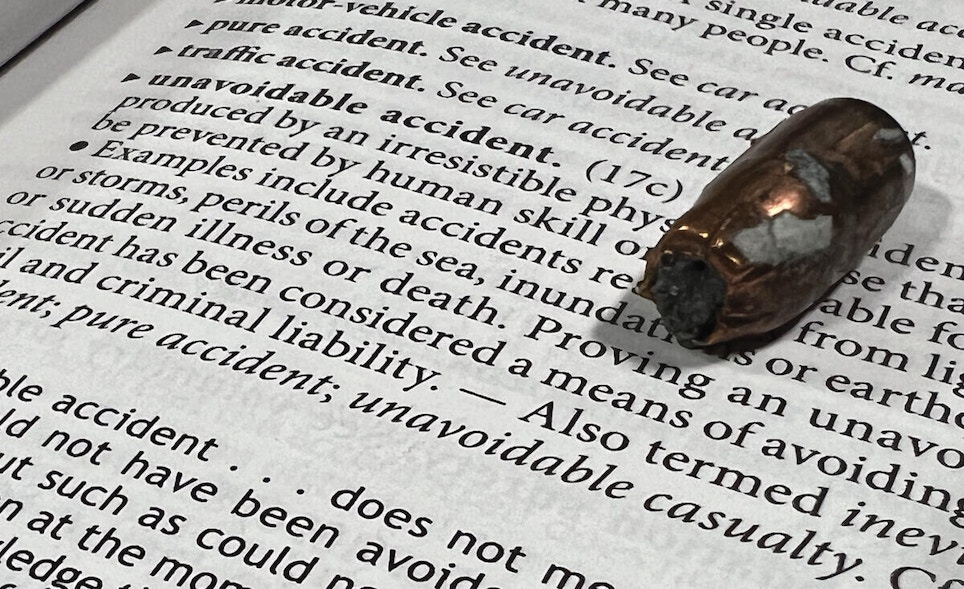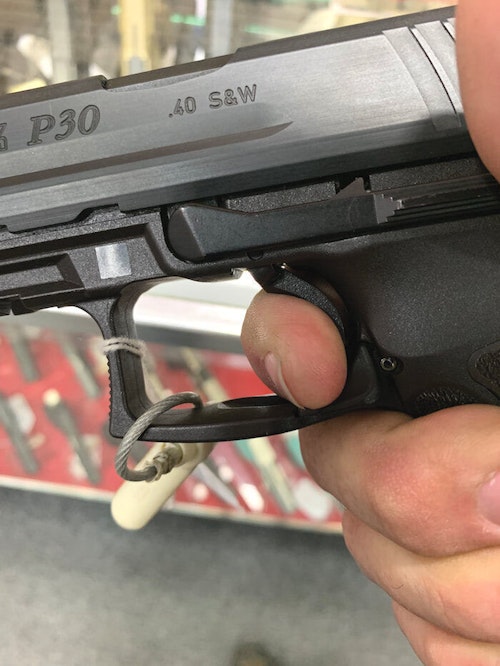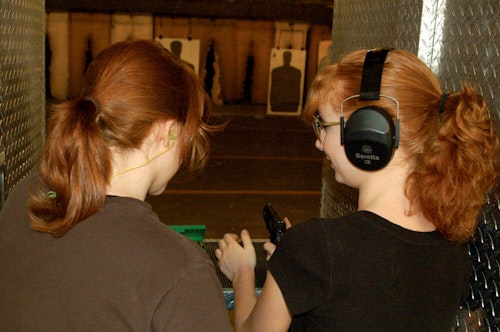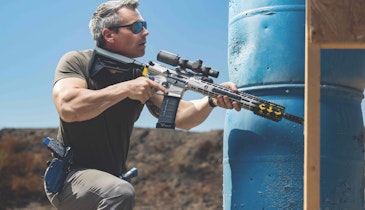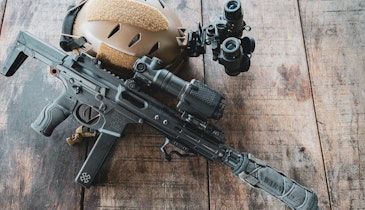In World War I, some soldiers were said to have accidentally shot themselves in the foot to be taken from the front line, opting for medical care rather than exposing themselves to almost certain death on the battlefield. These “accidental” shootings weren’t accidental at all. From this, the phrase “Shoot yourself in the foot” came to mean doing something that would harm yourself.
Those of us who’ve been around a while can recall the 2004 incident where a DEA agent shot himself in the foot while giving a gun safety class to children in Orlando, Florida. He did so after proclaiming, “I’m the only one in this room professional enough, that I know of, to carry this Glock 40." The last I’ve heard, he is no longer in law enforcement and has sued the DEA because he can’t find work in his chosen profession — here is a modern instance where someone shot themselves in the foot by shooting themselves in the foot.
I’ve seen numerous unintentional discharges as a police officer and firearms instructor. They’ve come from SWAT team members, firearms instructors and shooters with decades of experience. Thankfully, none of these incidents injured anyone, but they illustrate breaking even one safety rule could have fatal consequences no matter how confident you are in your gun handling.
Having a gun discharge unintentionally is an embarrassing situation, especially for anyone who considers themselves proficient with guns. Very few people are confident enough to admit that they’ve had it happen to them. They don’t want to be the subject of ridicule and condemnation. It’s almost inevitable that every negligent discharge will be labeled as negligent. Yet, as a mentor once told me, there are two types of people: those who’ve had an unintended discharge and those who will. This begs the question: Is every unintended discharge a sign of negligence? Prosecuting attorneys argue yes. Defense attorneys argue no. Let’s look at some terms and examples that will help you explain gun safety to your customers.
Negligent Discharge
It’s generally accepted that a negligent discharge is an unintentional firing of a shot resulting from mishandling of a gun or a violation of one of the four universal safety rules.
Accidental Discharge
An accidental discharge is where the safety rules were followed, yet the gun fired anyway. There have been recent claims by some law enforcement officers that their holstered handguns have unexpectedly discharged. Accidental discharges are extremely rare since a mechanical problem with the gun generally causes them.
Unfortunately, things aren’t always so clear, as the following examples illustrate.
Startle Response
When humans suddenly and unexpectedly hear a loud noise, they instinctively display several sharp behaviors. They will crouch down, lowering their head toward the shoulders to protect it and pulling their arms in toward the body. They also tend to clinch the hands (and usually some posterior parts too). All of these are survival behaviors designed to make themselves a smaller target and to protect vital body parts. If they happen to be holding an object, clinched hands will tighten around it for a firmer grip.
I witnessed one instance where this clinching effect caused a finger to enter the trigger guard and pull the trigger, causing an unintended discharge. This person was a student of mine on an indoor range and was under careful observation. Unfortunately, the next shooting lane was occupied by someone shooting a 500 S&W. The boom from that cannon startled both of us. This shot went harmlessly downrange, but the fact remains that it was not the student’s intention to fire. Is that accidental or negligent?
Balance Disruption
While squirrel hunting, one of my buddies slipped in a patch of mud. He dropped his shotgun and tried to break his fall with both hands. His right hand happened to land with a finger through the trigger guard, causing the gun to discharge. Can he be accused of negligence?
Sympathetic Response
I used to have a video clip of several deputies subduing a suspect. One of them was covering the suspect while the other had moved in to secure the bad guy. When the first deputy attempted to use the radio, she experienced a sympathetic nerve response, when one hand tends to mirror the actions of the opposite one under stress. She squeezed the microphone with one hand, causing an instinctive contraction of the other hand that resulted in her handgun discharging. Was it negligence?
Reaction Time
It’s common now with cell phones and body cams for shooting instances to be captured on video. You should expect it. I’ve seen videos of actual police shootings where an officer is engaged in a gun battle with a bad guy, and both are rapidly firing. There is a short delay between the time that the bad guys stop shooting and the officer stops. The result is that the officer fires two or three additional rounds before stopping. Prosecutors claimed the additional rounds were negligent because the threat was no longer present. Fortunately, experts have effectively demonstrated the reaction time between seeing the threat stop and the ability to stop shooting.
Undoubtedly, you immediately made your choice as you read each situation above. It’s natural to do so. I’ve made no moral judgments in any of these instances. I recounted the facts to show that not all situations are as simple as they first appear.
I can’t think of any profession where people handle firearms more than those of you who sell them. Not only do you handle more firearms than 99% of the gun community, but you also handle the widest variety of guns. You must be familiar with various controls and how to operate each. More importantly, you must explain them to customers in easy-to-understand terms. It’s a lot to ask, yet most gun salesmen that I’ve talked to do an admirable job. We all learn and teach the Four Rules of Firearm Safety to avoid safety incidents, but rules aren’t enough. People retain information that matters to them. If you give them a rule, they’ll have difficulty recalling it. If you tell them a story that touches their emotions (making it matter), they’ll remember the story and the rule(s) it illustrates. If you discuss the stories with them, you open up even more teaching avenues, and they will retain it.
If you believe the above illustrations are merely academic distinctions, they are not. If one of your customers is in a self-defense shooting, the words they use to describe it have long-term implications. Small differences in meaning make a difference, even if we mistakenly use a term. We’ve talked several times about how influential gun salespeople are. You’re at the forefront — on the front lines. The words and stories you use to illustrate points will heavily influence your customers’ thoughts and behaviors through a lifetime of firearm activities. Let’s start them off right.
